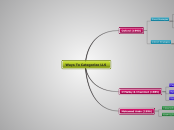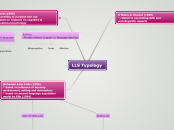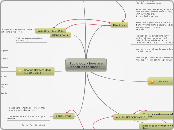Ways To Categorize LLS
Mohamed Amin (1996)
Exam LLS (ELLS)
- Early Preparation before Class
- Physical Structuring in the Class
Classroom LLS (CLLS) & Out-of-Class (OLLS)
- Language Use
- Exam Preparation
- The use of Media
- Dealing with New Words
- Focussed with Learning
- Social Learning outside the class
- Social Learning in the class
O'Malley & Chammot (1985)
Socioeffective Strategies
Work as a medium foe social activities and interacting with other people. Example :
1.) Asking for Clarification
2.) Cooperating with Peers
3.) Pooling Information
4.) Checking a Learning Task
5.) Getting Feedback on a Learning Activity
Metacognitive Strategies are strategies for planning for learning, thinking about the process of learning, monitoring results and understanding, and evaluating learning after a particular language task has been completed. For example :
1.) Timetable
2.) Conversing with Native Speakers
3.) Identifying Mistakes
4.) Improving Language Skills
Cognitive Strategies focuses on the learning. It covers all the activities to manipulate learning materials continously through different ways. For examples :
1.) Managing Resources
2.) Making Arrangement
3.) Summarizing
4.) Elaborating
5.) Labelling
6.) Transferring Information
Oxford (1990)
Indirect Strategies
Social Strategies
Help students learn through interactions with others.
1.) Asking Questions
2.) Cooperating With Others
3.) Emphathizing With Others
Affective Strategies
Helps to regulated emotions, motivations and attitudes.
1.) Lowering Your Anxiety
2.) Encouraging Yourself
3.) Taking Your Emotional Temperature
Metacognitive Strategies
Allow learners to control their own cognition.
1.) Centering Your Learning
2.) Arranging & Planning Your Learning
3.) Evaluating Your Learning
Direct Strategies
Compensation Strategies
Allow learners to use the language despite their often large gaps in knowledge.
1.) Guessing Intelligently
2.) Overcoming Limitations in Speaking & Writing
Cognitive Strategies
Enable learners to understand and produce new language by many different means.
1.) Practising
2.) Receiving & Sending Messages
3.) Analysing & Reasoning
4.) Creating Structure for Input & Output
Memory Strategies
Help students store and retrieve new information.
1.) Creating Mental Linkages
2.) Applying Images & Sound
3.) Reviewing Well
4.) Employing Action









